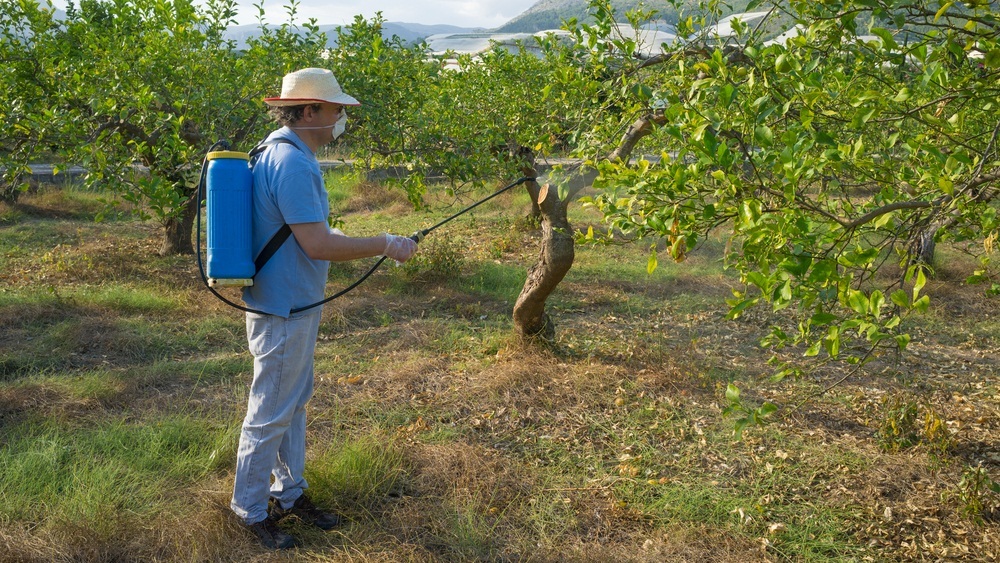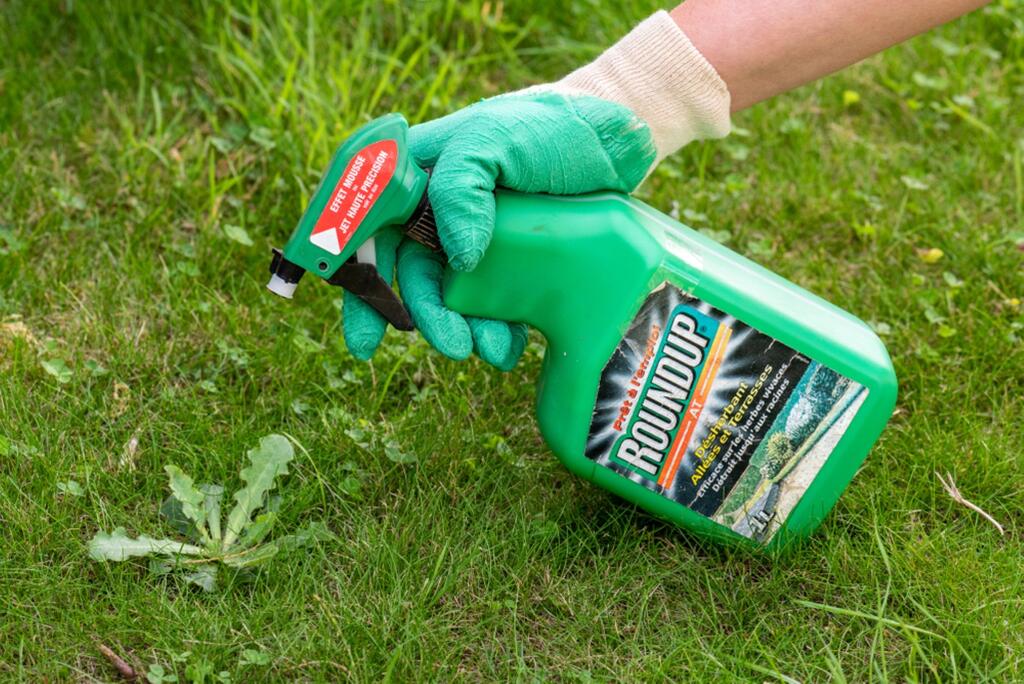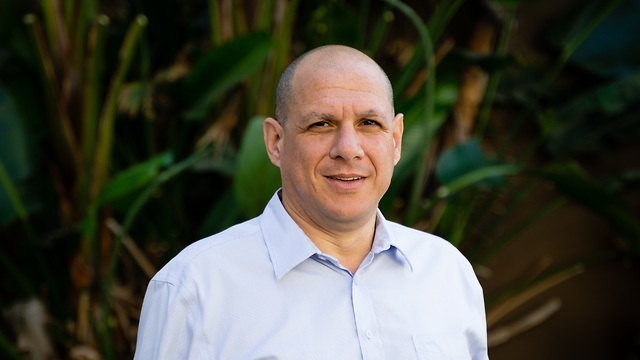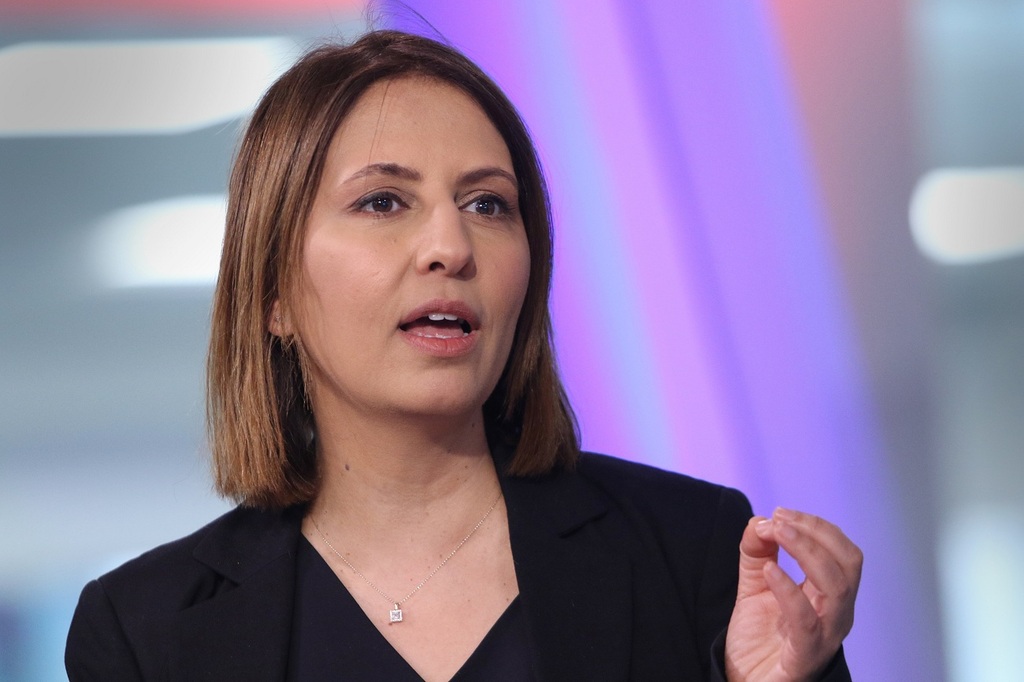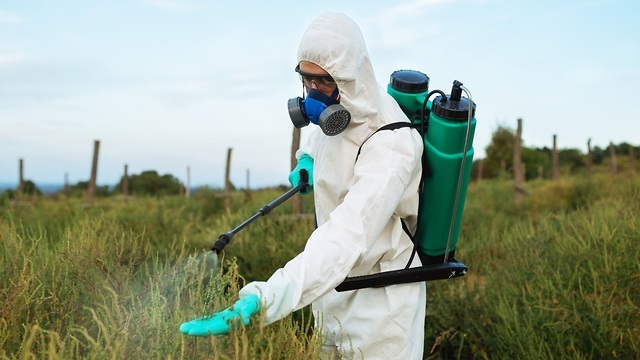These are clearly tough times for the planet we all live on. As if COVID-19 were not bad enough, we are witnessing in tragic fashion the ravages of effects of climate change, from devastating hurricanes to historic forest fires.
Meanwhile, under the radar, the use of environmental toxins keep growing, contributing stealthily and lethally to debilitating and often fatal chronic diseases.
We are all familiar with the more visible and detectable forms of pollution, such as the smog that fouls our air, or the noxious smells from industrial chemical smoke. Not surprisingly, air pollution causes respiratory illnesses, such as asthma and -- in the extreme -- lung and other cancers (perhaps more surprisingly, air pollution is also implicated in cardiovascular disease, especially ischemic heart disease and stroke).
In Israel, we are most familiar with this phenomenon from Haifa, where pollution from its refineries and infamous ammonia factory have led to 9-14% more cases of cancer than the rest of the country.
Another form of pollution that may or not be visible is water pollution, from the waste that dirties or clogs our streams and rivers. Contaminated water is often the breeding ground for pathogens that cause historically devastating diseases, such as typhoid, cholera and dysentery.
While advances in sanitation and medicine have effectively eradicated these plagues in economically developed countries, concentrations of lethal pathogens can still accumulate in untreated water.
Hollywood feature films like Erin Brokovich have helped shine a spotlight on corporate culpability in the wanton contamination of our water supplies. In Israel, the most dramatic demonstration of this danger was the disaster that befell the 1997 Maccabiah games, when a temporary bridge over the Yarkon River collapsed, and three athletes died not from the accident or drowning, but from acute infections contracted from exposure to the water.
7 View gallery


The scene of the bridge collapse at the Maccabiah Games in Tel Aviv, July 1997
(Photo: Reuters)
More recently, what has grabbed global headlines is the manifestation of a new phenomenon: widespread, willful food contamination. Not occasional outbreaks of bacterial poisoning resulting from careless sanitation in food processing plants, but rather the deliberate introduction of toxic chemicals into our food supply.
The judicial earthquake that has just rocked the agricultural world is this summer’s blockbuster $10 billion settlement of a class action lawsuit in the United States against the German chemical and pharmaceutical giant Bayer, to compensate tens of thousands of plaintiffs for their cancers -- non-Hodgkin’s lymphoma (NHL), to be precise -- contracted from exposure to the herbicide glyphosate.
Anyone familiar with legal jurisprudence knows that it takes mountains of irrefutable evidence to substantiate claims of causation of disease that will hold up in court.
For the executives and high-priced lawyers of Bayer to reach the conclusion that it is worthwhile for them to pay out this massive sum means that the proof must have been convincing.
Yet they paid in order to stem the flood of individual lawsuits that could have led to even more staggering judgments: this settlement comes on the heels of previous verdicts that had awarded up to $2 billion for single cases brought by victims who could show the link between their use of the Monsanto company’s weed killer Roundup and their diagnoses of NHL. (Roundup is the commercial name of the best-selling product that is largely glyphosate; Monsanto was acquired by Bayer two years ago.)
Bayer’s $10 billion has bought the company two important things: first of all, it puts a cap on future payouts, since it also sets up a fund to protect against future lawsuits. Secondly, and perhaps more importantly, it earns them the right to continue to sell Roundup without adding warning labels about its safety.
Still, Bayer is not out of the woods when it comes to liability for the deleterious effects of glyphosate. There are still some 30,000 plaintiffs who have not signed on to the settlement agreement and are holding out for their own judgments. And with Roundup on the market in most countries of the world, this US precedent is likely to be relevant in many other countries.
Glyphosate’s march to notoriety effectively began in 2015, some 40 years after it was introduced, when the World Health Organization (WHO) proclaimed that the chemical was “probably carcinogenic to humans.” That same finding was seconded by the International Agency for Research on Cancer (IARC).
On the other hand, the United States’ Environmental Protection Agency (EPA), along with some European outfits, have consistently and steadfastly bought into Monsanto’s arguments, which have maintained that there still remains insufficient “convincing evidence” to warrant classification as a probable carcinogen.
This split among the scientific community continues to divide regulators in countries throughout the world. The latest update (July 2020) from a leading U.S. law firm prosecuting class-action lawsuits against Monsanto/Bayer’s Roundup lists some 40 countries around the world where either total or partial bans or restrictions against glyphosate are in force.
Closer to home, a working paper by Tel Aviv-based Adam Teva V’Din (literal meaning, “Man, Nature and Law”) has called on the government of Israel to ban the use of glyphosate, in the wake of actions taken by individual countries within the European Union (e.g., Austria, Germany and France), along with the state of California, to restrict use of the herbicide (despite the lack of an outright ban in the EU or the U.S.).
Until such a ban takes effect here, the non-profit organization argues, a survey should be undertaken to measure the extent of its use in urban areas and to trace remnants of the herbicide in our food supply.
Adam Teva V’Din (which has also been known as the Israel Union for Environmental Defense) notes in its position paper: “There is massive use of herbicides in Israel, both as weed killers in agriculture, and in urban groundskeeping, including in public parks and gardens and along roadsides; in fact, herbicides now account for 25% of total pesticide use in the country.”
In view of what we now know, thanks to worldwide research, this sheds light on a startling statistic: a paper published under the auspices of the US National Institutes of Health’s National Center for Biotechnology Information notes: “NHL ranked as the 5th to 9th most common cancer in most countries worldwide, with almost 510,000 new cases estimated in 2018. Observed incidence rates of NHL [over the years] 2008-2012 varied markedly by world region: among males, rates were highest among Israeli Jews... 17.6 per 100,000.” (Emphasis mine - BG),
This is one world record you would think that Israel would not be proud of. Yet apparently it does not impress -- or perturb -- any of the relevant government ministries to the point of taking action.
As Bernadette Bouwer, the environmental scientist at Adam Teva V’Din in charge of the project monitoring the use of pesticides in public parks, as well as the remnants of pesticides in food, points out, the responsibility for regulation of glyphosate in Israel is divided among three different ministries.
The Ministry of Agriculture oversees the herbicide’s use in the cultivation of crops (both in the fields, as well as remnants remaining on fruits and vegetables as they are harvested and processed); the Ministry of Environmental Protection is in charge when it comes to its use in urban settings; and the Ministry of Health is tasked with measuring remnants in the foods we actually eat -- i.e., the produce that gets into the market.
“The Ministry of Agriculture insists the evidence is not conclusive and refuses to act,” Bouwer explains. “While the Ministry of Environmental Protection has promulgated no regulations at all governing the use in our cities’ public spaces -- not even in the area of protection for workers, an unusual omission even by world standards.
“The Ministry of Health has set glyphosate limits for 23 fruits and vegetables, but enforcement is non-existent. And neither it nor the Ministry of Agriculture is monitoring glyphosate levels in crops or food.”
This lack of oversight extends to flour and cereals -- indeed, all grains: wheat, oat, rice, barley, etc. -- where traces of glyphosate have been found in other countries. Other common foods that have been found to be tainted are breakfast cereals, snack bars, raisins and coffee beans.” (This just in -- more bad news for Israelis: hummus and chickpeas have also been found to be contaminated.)
Bouwer goes on to note that we import (as opposed to grow) cereals, beer, wheat and flour. Astoundingly, however, no agency in Israel is checking -- or even planning to check -- for glyphosate in any of these foods that we consume on a daily basis.
This apathy would be bad enough if the only threat were NHL, or even cancer. But the sad truth is cancer is only the tip of the iceberg.
Dr. Don Huber -- professor emeritus of biochemistry at the University of Purdue, who was a researcher for Monsanto who became a whistleblower when he could no longer keep silent about the dangers -- knows glyphosate better than just about anyone alive.
He implicates the herbicide in no fewer than 22 serious diseases -- primarily neurodegenerative, autoimmune and cognitive diseases -- any one of which sends shudders down the spine.
His list enumerates many well-known -- and justifiably feared -- diseases, including Parkinson’s disease, multiple sclerosis (MS), ALS, arthritis, lupus and fibromyalgia (in adults), and ADHD and autism in children (celiac disease is one that afflicts both adults and children).
Huber has given detailed scientific explanations about how glyphosate’s chemical composition adversely affects the body, in many different ways.
Those wishing to drill down into the specific diseases linked to glyphosate may check out the glyphosate scorecard published by Beyond Pesticides.
This checklist of positive associations with horrifying diseases reads like a who’s who of nightmare illnesses: cancer, endocrine disruption/reproductive effects (such as infertility), neurotoxicity, kidney/liver damage, and prenatal development (a 2018 study in Finland found “evidence that maternal exposure to insecticides is associated with autism among offspring”).
There are also disturbing secondary effects: glyphosate has been detected leaching into groundwater, meaning that it contaminates our drinking water as well as our foods; it also is implicated in depleting vital minerals in the soil, meaning that the foods we grow are far less nutritious now than they should be (or used to be).
Alarmingly, the National Institutes of Health reported back in 2017 that up to 7% of the U.S. population suffers from an autoimmune disease — and the prevalence is rising. I don’t think it takes a researcher to tell us this, when most of us can deduce it from the news and anecdotally: just ask yourselves how much you heard about diseases like fibromyalgia and autism 10 years ago, compared to today.
In sum, the statistical bottom line is the most frightening of all: according to the CDC, the United States is the only country in the developed world where life expectancy has been steadily declining for the last five years! The U.S. has ranked disappointingly lower than many other countries to begin with -- only #46, behind Estonia and Cuba -- but this decline even during times when medical science has been increasing life expectancy is truly amazing.
The consensus among health experts is that detrimental lifestyle habits -- poor diet, lack of exercise, unmanaged stress, etc. -- are major contributing factors to this lamentable drop in life expectancy.
Among the dangerous stressors in modern life are those defined as environmental, including the unrelenting growth of the chemical burden on our bodies, whether the culprits lurk in our household cleaners, personal care products, carpet and furniture treatments, or toxic pesticides.
The current fight against glyphosate poisoning in Israel -- where, thankfully, life expectancy is considerably higher than in the US, although lower than in 11 Asian and European countries -- is being waged almost single handedly by Adam Teva V’Din; there are other pro-environment organizations in Israel, but they are primarily focused on sexier issues, like renewable energy, and clean air and water.
This lone organization is doing its best with limited resources, and are promoting a bill that would legislate restricting the use of pesticides for the protection of public health.
A visual depiction of the status of this struggle in Israel’s cities may be observed in the organization’s map of municipalities categorized by classifications of green, yellow and red.
While there have been a few successes, such as recently in Kfar Saba, as the NGO’s spokeswoman laments, the Ministry of Environmental Protection is hesitant to act without legislative backing.
So, what can the average citizen do? There are two spheres to consider: the personal and the public. On the personal level -- protecting ourselves and our families -- it is incumbent on us to be more careful about the foods and produce we eat.
Since glyphosate on fruits and vegetables is toxic, consider buying organic. Because organic is considerably more expensive, it is good to know that the Environmental Working Group (EWG) has published a guide of the “Dirty Dozen” and the “Clean 15” to help narrow down which fruits and vegetables to prioritize when shopping (download the guide here).
On the public plane, things are harder. In Israel, we do not have members of Knesset who represent constituents in the local districts in which we live. There is a Knesset committee called the Internal Affairs and Environment Committee; but although MKs from all parties are represented thereon, it is worth noting that the “environment” component was tacked on later as an afterthought, to a committee that primarily deals with more politicized issues.
It is high time that there was a dedicated committee in our legislature dealing with the protection of the environment.
So our public activism is probably best targeted very locally, at the municipal level, where individual impact might be expected to be greater. One inspiring example is the grassroots movement in Haifa and its immediate environs that led to the eventual closure of the notoriously polluting oil refinery and ammonia factory.
In the final analysis, it seems evident that meaningful change for the benefit of the Israeli public will not come about until legislation gives power to the Ministries of Health and Environmental Protection equal to that of the Ministry of Agriculture. In particular, it is vital that the concerns of the Food Control Services department of the Ministry of Health be strengthened vis-a-vis the Plant Protection Service of the Ministry of Agriculture.
For now, every Israeli should be asking: do we really want go down the path of the United States, and risk an explosion of deadly and debilitating diseases, leading to an eventual decline in our overall life expectancy?
***
Addendum 1:
One rare success for the environmental lobby came recently, when the Minister of Environmental Protection announced she was putting forward legislation to expand deposits on plastic bottles to include large 1.5- and 2-liter bottles, the most popular size for soft drinks.
Currently, the deposit of 30 agorot is collected only on small plastic bottles (as well as aluminum cans and glass bottles); the deposit is rebated when the bottles are returned to store for recycling.
Amit Bracha, Esq., CEO of Adam Teva V’Din, praised the move. “This law will put an end to the era in which millions of plastic bottles pollute our public places, beaches and nature reserves,” said Bracha. “The public will earn rebates of millions of shekels annually and live in a cleaner, healthier country.”
Of course, the proposed bill has a long way to go in the Knesset legislative process before it becomes law. The bill is vehemently opposed by the powerful multinational corporation Coca Cola, as well as domestic heavyweights like Tempo, whose corporate lobbying influence is expected to make passage tough sledding.
Addendum 2:
Naturally, as responsible journalists, we reached out to the various ministries to get their reaction to what we are reporting.
It turns out that the Ministry of Agriculture, and specifically the agency’s Plant Protection Services, has the lead role in determining the government’s policies regarding pesticides. Thus, for example, the Ministry of Environmental Protection feels that “the Ministry of Agriculture invariably evaluates the pesticides from the point of view of what is good for agriculture, and it ultimately determines whether to ban one substance or another -- even it totally contradicts the positions of the other professionals.”
The Ministry of Health was a bit more oblique: “The inter-ministerial committee recommended to the Ministry of Agriculture’s director of Plant Protection Services to ban the use of certain substances in Israel. Some of the committee's recommendations were adopted, but not all of them.”
For its part, the Ministry of Agriculture insists that Israel maintains “strict rules governing the use of pesticides.” With regard to glyphosate, it claims that its use is limited to the pre-planting phase, “thus minimizing the amount of glyphosate that remains on the crops when they are harvested.” The ministry takes great pains to point out that it conforms to standards that exist elsewhere, and “monitors very carefully the positions taken by other countries.”
In response to the Ministry of Agriculture, Bernadette Bouwer points out that the ministry is perhaps not being entirely truthful.
“In fact,” she says, “the spraying of glyphosate on grains takes place not only in the pre-planting phase, but also just before harvest... according to the Ministry of Agriculture’s latest survey, the permissible amount of traces or pesticides in the food supply was exceeded by 16% -- four times the 4% level in Europe.”
At the same time, several other nasty pesticides -- notably paraquat, chlorpyrifos and dicamba, all rated Toxic by Beyond Pesticides and outlawed by most developed countries -- are still in use in Israel, because the Ministry of Agriculture is delaying a ban that was recommended by its sister ministries.(See their toxicity scorecards at the links provided.)
Adam Teva V’Din wrote to Minister of Agriculture Benjamin Netanyahu (yes, the same Benjamin Netanyahu) last year asking for a ban on chlorpyrifos, but received no meaningful reply. Moreover, the Ministry of Agriculture has been delaying for years releasing the minutes of recent inter-ministerial meetings, despite the legal requirement for them to do so,
Finally, Bouwer adds, pesticide use in urban areas continues without training [of workers], supervision or the fencing off of recently sprayed areas, thus exposing the general public -- including children, who are especially vulnerable -- to dangerous toxins.


